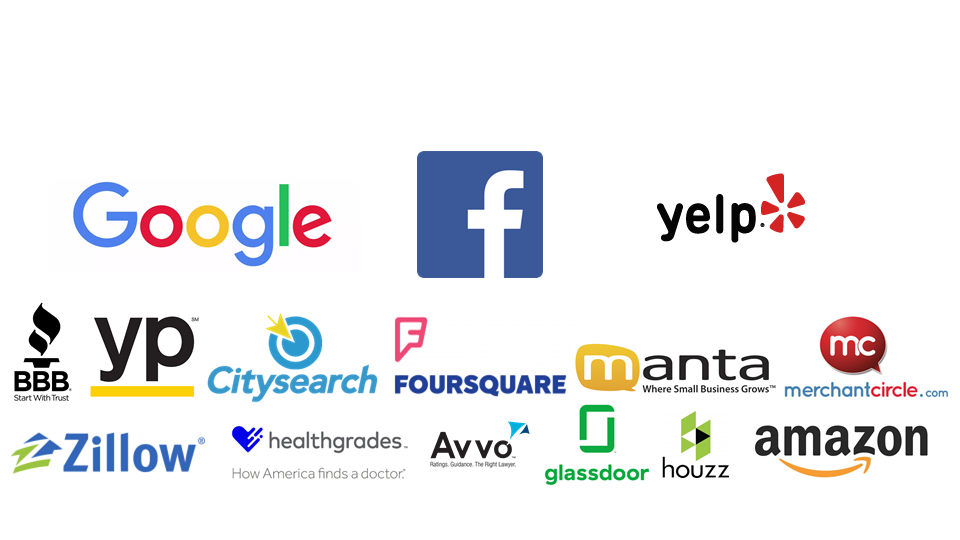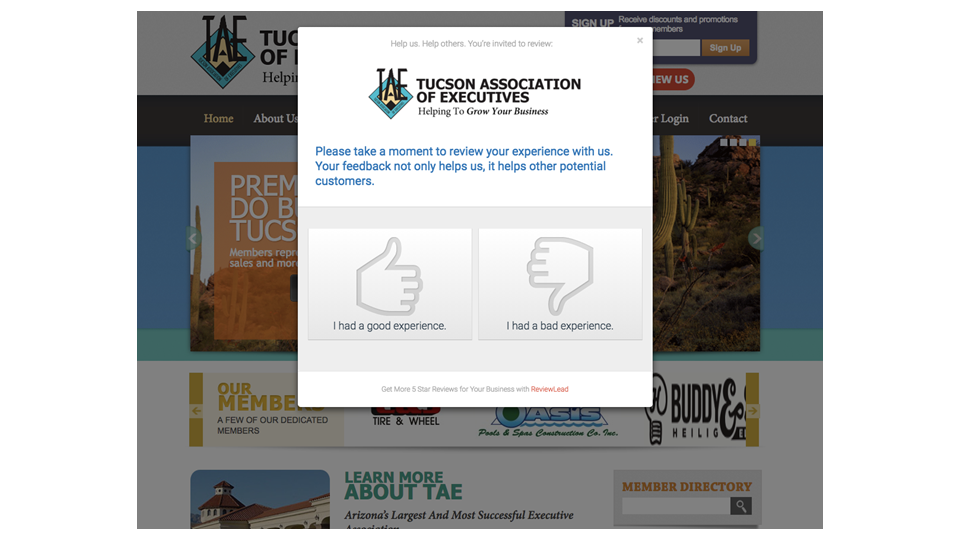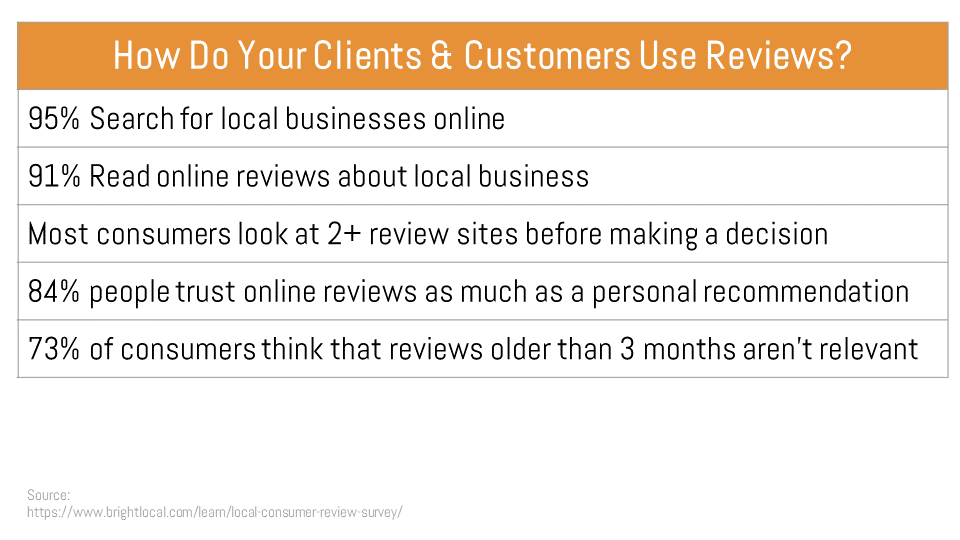Reviews: Reputation Management and Why It’s Important
Did you know that reviews are everywhere? Did you also know that most people read them?
For businesses, the fact that reviews are everywhere, and everyone is reading them, is vitally important to your business. However, this simple fact is crucial for several reason you may not have known. First, reviews are the leading force in the make or break of a new business. Even an old business that is just now switching to the online platform. They are spread via social media, word of mouth and email. People search Google to find reviews on business and their products or services. There are even websites specifically for reviews such as Next Door, Yelp, Yellow Pages, and TripAdvisor. Facebook even has a review section on most business pages. That is a lot of coverage just for someone’s opinion.
Reviews are used in several ways, such as:
• Helping customers decide on your service
• Proving you are credible (or not)
• Proving you are trustworthy (or not)
• Improving your SEO and placing you in front of consumers
What does any of this have to do with you as a business owner? A lot! If you want to succeed as a business owner, you need to know how to manage positive and negative reviews.

Why do people read reviews?
As stated above, reviews help customers decide on your service. From mobile phone to dental services, it is rare to blindly make a purchase these days without reading through several online reviews. In 2016, 90% of shoppers read at least one online review before deciding to visit a business. More importantly, 94% of online shoppers reported that a negative review has convinced them to avoid visiting a business. That is a big deal if your business has bad reputation management. We are more likely to make a purchase if others around us- even total strangers – agree that it is the right decision. Today, online reviews are the largest source of social proof, and they have a clear impact on sales. Even more so with the pandemic there is nothing more important than having a well maintained online reputation, when more people purchase items and services online than they have ever done before.
The last thing you want to do is break the trust of your consumers
Your brand can build significant trust and credibility from a steady stream of positive reviews. With services that help monitor your online presence and reviews posted to any of your websites, it has become significantly easier to keep the negative separate from the positive. You do not want to just keep the negative separate though. It is your job as a business owner to address any negative reviews that come your way in a timely manner as well as you can, that is what makes you trustworthy.
Why is it important to be trustworthy?
Because the market is cutthroat in more ways than one. One of the interesting findings of recent research is just how powerful reviews are at building your company’s online identity. Many shoppers distrust businesses that have ratings below (or even above, in some cases) four stars. This does not leave a significant amount of room for error at the top. Companies with better than average ratings are significantly more likely to see views converted into traffic and sales.
How do I get customers to leave reviews?
It can be tricky to get consumers to leave reviews. Happy customers will never tell you they are happy, unhappy customers will let you know. How do we fix this? The most basic way is to simply just ask. You would be surprised how willing someone will be to provide a positive review if you simply just asked them to provide their opinion about their experience. If you are not ok with asking directly, there are plenty of other ways to get their opinions.

A few different ways to get customers to leave reviews are:
1. Create a process for asking for the reviews: Have a customer service agent remind the customer to leave a review at the end of a transaction.
2. Automate the ask: Sometimes asking manually is not an option or it is considered inappropriate to do so. Automate the ask by providing an automatically generated follow up email asking the customer to fill out a review form or provide monthly check in emails if the product is a monthly subscription.
3. When asking, target the satisfied customers: You would not ask an irate customer to provide a review for your product, because that could lead to some serious damage. Asking the satisfied customer would provide and almost guaranteed positive review, boosting your reviews.
4. Personalize asking: Instead of asking every customer to leave a review, ask individual customers. This works best for small businesses. This makes the customer feel like you genuinely care about their opinion, and you have paid attention to their needs during the process.
5. Explain why their reviews are important: Sometimes it is not above you to explain to your customers why their reviews are important for your business. Most of the time,
you will get positive feedback from this, especially from those who are willing to support your endeavor.

